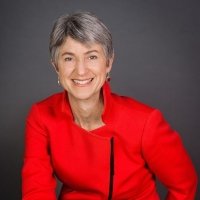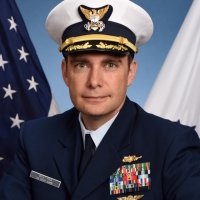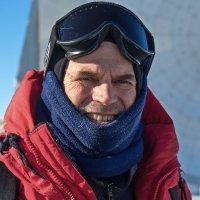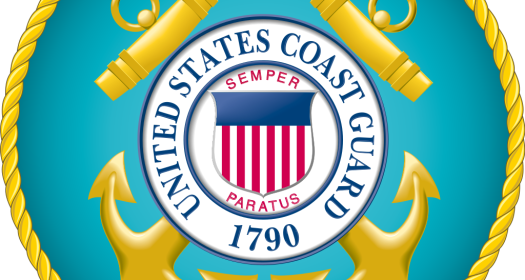Antarctica: U.S. Research and Diplomacy on the Southern Continent
At “Antarctica: U.S. Research and Diplomacy on the Southern Continent,” Antarctic experts joined the Wilson Center’s Polar Institute, Latin America Program, and China Environment Forum for a discussion on Antarctic research, security, and diplomacy and the U.S. role in the past, present, and future of Antarctica. This event was cosponsored by the National Science Foundation and the U.S. Coast Guard, taking place virtually on Friday, November 13, from 2:00 to 3:30 pm EST. Dr. Mike Sfraga, Director of the Polar Institute, moderated the discussion.
Marisol Maddox, Arctic Analyst with the Polar Institute, began the event by introducing the speakers and providing a brief introduction to U.S. interests in the Arctic. She noted that 2020 is the 200th anniversary of the discovery of Antarctica and highlighted the rich history of U.S. interest in Antarctica as one of the 12 original signatories of the Antarctic Treaty.
Ambassador David Balton, Senior Fellow with the Polar Institute, gave an overview of Antarctica’s geography, history, and national geopolitics. Amb. Balton outlined key provisions of the Antarctic Treaty, including the treaty’s provisions on inspection of national research stations and assuring compliance with environmental regulation and the restriction on military activity. He also discussed the Antarctic Treaty System, of which the Antarctic Treaty is a part, which also includes the environmental and wildlife protection agreements including the Convention for the Conservation of Antarctic Marine Living Resources, or CCAMLR.
Dr. Kelly Falkner, Director of the Office of Polar Programs of the National Science Foundation (NSF), provided a deeper dive into U.S. research in Antarctica and how U.S. activity on the continent became primarily scientific and exploratory in nature. She highlighted early scientific expeditions and Navy explorations to Antarctica, including Operation Highjump and Operation Windmill, then turned to a discussion of the NSF’s U.S. Antarctic Program (USAP). NSF is mandated to run three year-round stations on Antarctica, which include Palmer Station, Amundsen-Scott South Pole Station, and McMurdo Station. Dr. Falkner emphasized the unique research focuses of each station, including but not limited to marine and biological research, space weather, weather forecasting, ocean observation, climate research, ice sheet stability, and ocean-ice interactions.
Dr. John Carlstrom, Subrahmanyan Chandrasekhar Distinguished Service Professor in the Department of Astronomy & Astrophysics at the University of Chicago, spoke on Antarctica’s importance in astrophysics research due to its geographic access to observe the sky and its uniquely dry and stable atmosphere. Dr. Carlstrom emphasized types of astrophysics research conducted in Antarctica, including research on the cosmic microwave background, the massive black hole at the center of our galaxy, and the highest energy events in the universe. He also discussed various technological tools in Antarctica, facilitated by its location and geography, including the Cosmic Microwave Background Telescopes and the IceCube Neutrino Observatory.
Captain William Woityra, Commanding Officer of the U.S. Coast Guard Cutter Polar Star, ended the panel with a discussion of Coast Guard icebreaking and logistical support of U.S. research and diplomatic interests in Antarctica, collectively known as Operation Deep Freeze. Captain Woltyra began by noting that the Polar Star first departed from Seattle to go to Antarctica 43 years ago to this day, continuing its expeditions to the continent nearly every year since 1977. He also highlighted new Coast Guard investments in heavy icebreakers and cutters in the coming years and training partnerships to ensure the continued success of the Coast Guard polar icebreaker fleets, exerting sovereignty in the Arctic alongside supporting research in Antarctica.
The Office of Polar Programs supports world-class Arctic and Antarctic science through grants to U.S. researchers, polar facilities and operational support.
Learn MoreThe Coast Guard is America's maritime first responder.
Learn MoreIntroduction

Moderator

US Ambassador-at-Large for Arctic Affairs; Former Chair, US Arctic Research Commission
Panelists




Hosted By

Polar Institute
Since its inception in 2017, the Polar Institute has become a premier forum for discussion and policy analysis of Arctic and Antarctic issues, and is known in Washington, DC and elsewhere as the Arctic Public Square. The Institute holistically studies the central policy issues facing these regions—with an emphasis on Arctic governance, climate change, economic development, scientific research, security, and Indigenous communities—and communicates trusted analysis to policymakers and other stakeholders. Read more


Latin America Program
The Wilson Center’s prestigious Latin America Program provides non-partisan expertise to a broad community of decision makers in the United States and Latin America on critical policy issues facing the Hemisphere. The Program provides insightful and actionable research for policymakers, private sector leaders, journalists, and public intellectuals in the United States and Latin America. To bridge the gap between scholarship and policy action, it fosters new inquiry, sponsors high-level public and private meetings among multiple stakeholders, and explores policy options to improve outcomes for citizens throughout the Americas. Drawing on the Wilson Center’s strength as the nation’s key non-partisan policy forum, the Program serves as a trusted source of analysis and a vital point of contact between the worlds of scholarship and action. Read more


China Environment Forum
China’s global footprint isn’t just an economic one, it’s an environmental one. From BRI investments in Africa and Asia to its growing presence in Latin America, understanding China’s motivations, who stands to gain - and who stands to lose - is critical to informing smart US foreign policy. Read more


